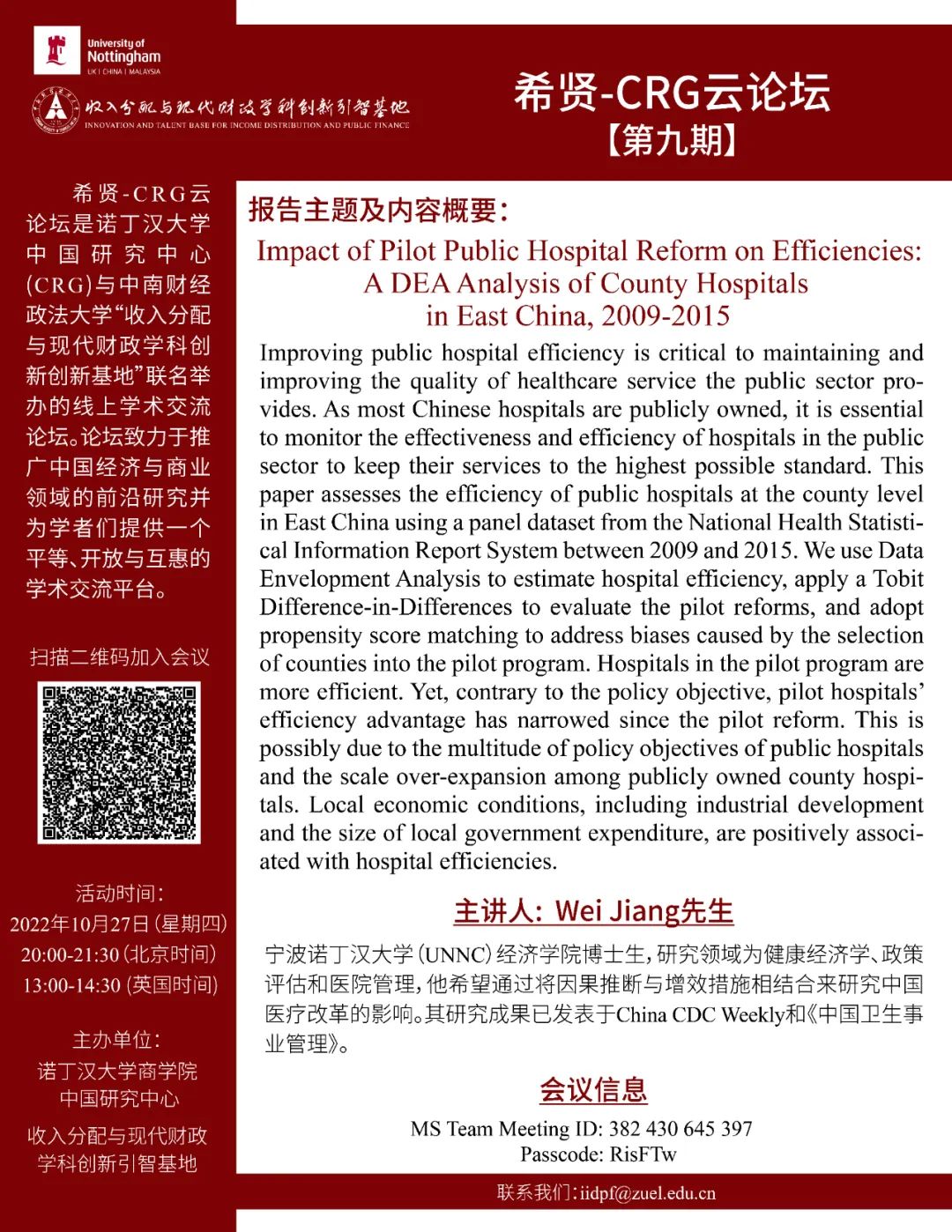
Topic:Impact of Pilot Public Hospital Reform on Efficiencies: A DEA Analysis of County Hospitals in East China, 2009-2015
Abstract:Improving public hospital efficiency is critical to maintaining and improving the quality of healthcare service the public sector provides. As most Chinese hospitals are publicly owned it is essential to monitor the effectiveness and efficiency of hospitals in the public sector to keep their services to the highest possible standard. This paper assesses the efficiency of public hospitals at the county level in East China using a panel dataset from the National Health Statistical Information Report System between 2009 and 2015. We use Data Envelopment Analysis to estimate hospital efficiency and apply a Tobit Difference-in-Differences to evaluate the pilot reforms and adopt propensity score matching to address biases caused by the selection of counties into the pilot program. Hospitals in the pilot program are more efficient. Yet, contrary to the policy objective pilot hospitals' efficiency advantage has narrowed since the pilot reform. This is possibly due to the multitude of policy objectives of public hospitals and the scale over-expansion among publicly owned county hospitals. Local economic conditions including industrial development and the size of local government expenditure are positively associated with hospital efficiencies.
Keynote speaker:Wei Jiang
Wei Jiang is a PhD student in the School of Economics at the University of Nottingham Ningbo, with research interests in health economics, policy evaluation and hospital management. He hopes to study the impact of healthcare reform in China by combining causal inference with efficiency measures. His research has been published in China CDC Weekly and China Health Care Management.
Time: October 27, 2022 (Thursday) 20:00-21:30 ( Beijing time) 13:00-14:30 (UK time)
